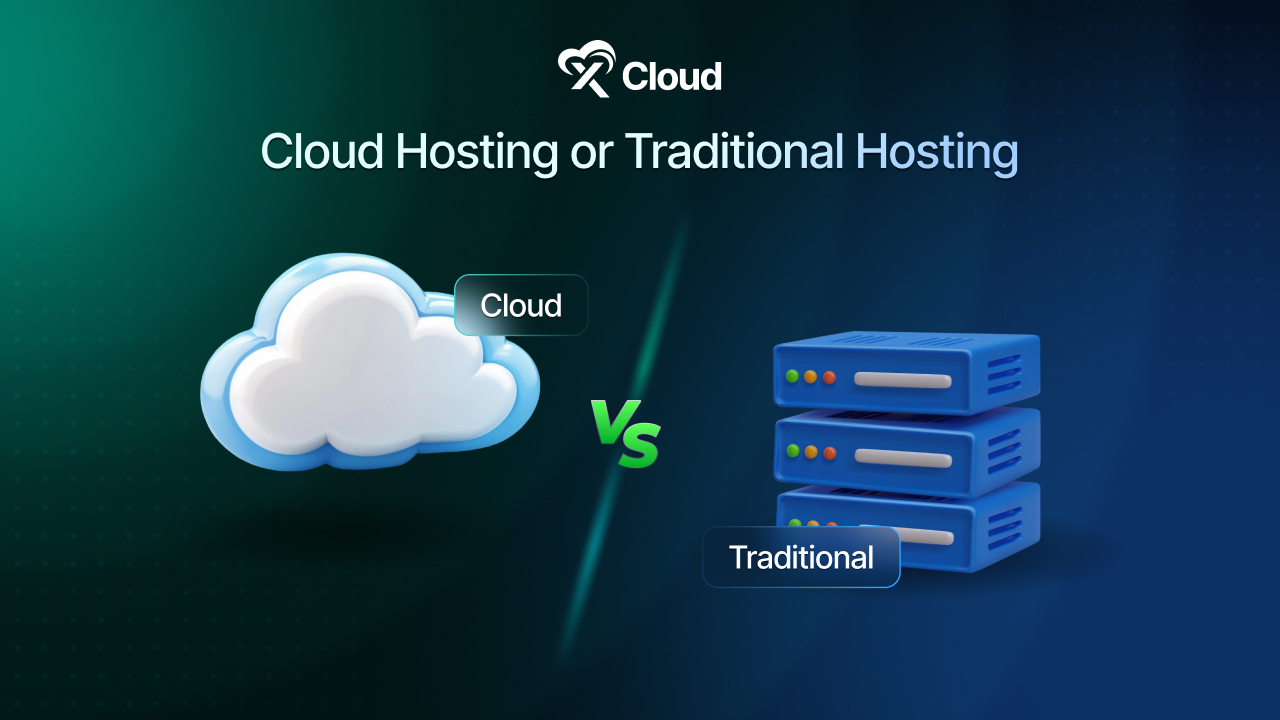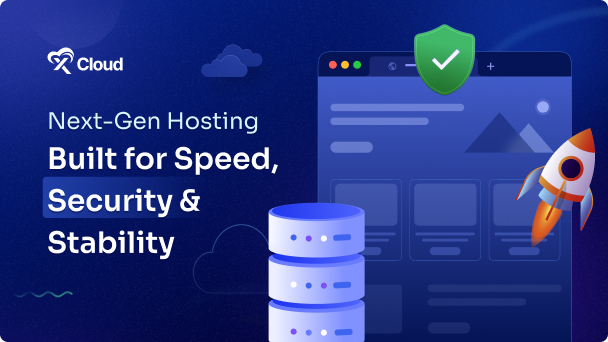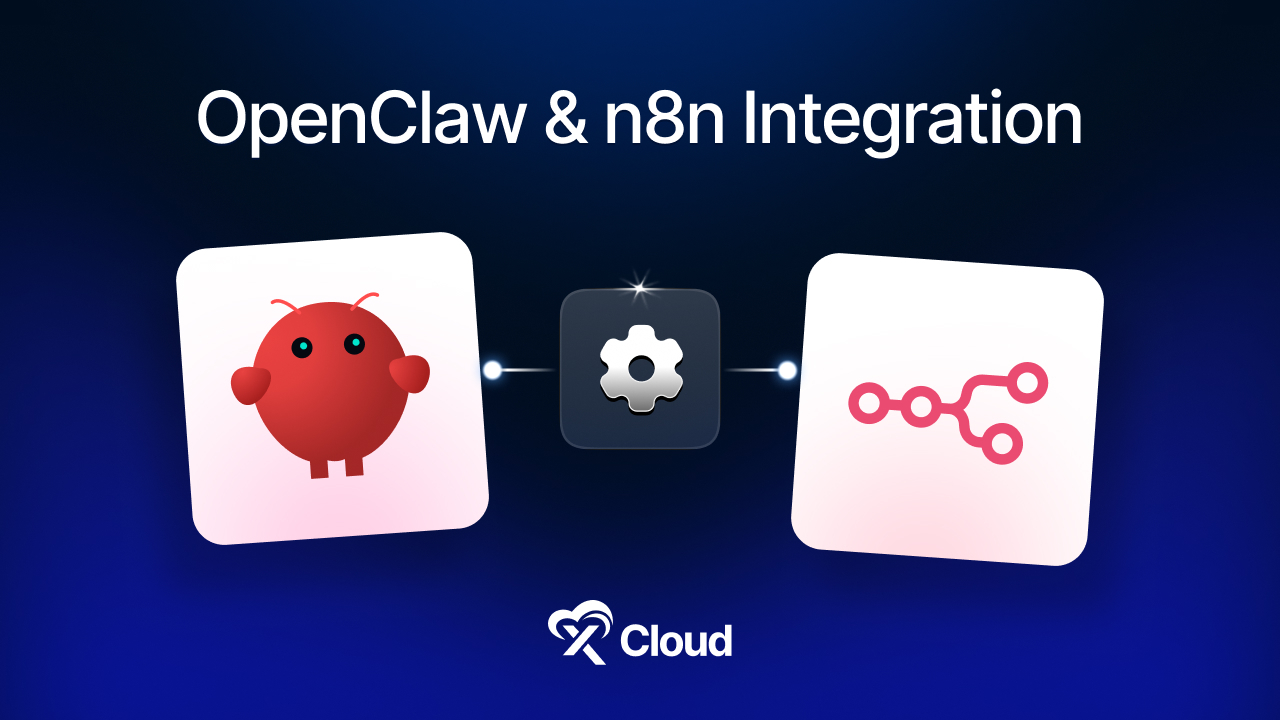Choosing the right type of web hosting can be a critical decision for your website or online business. If you are stuck between cloud hosting or traditional hosting, you are not alone. Many people ask this exact question when building a new site or planning to scale.

Read the guide to understand both types of hosting. You will learn what they are, how they work, what makes them different, and which one is the right fit for you. Let us start with the basics.
What Is Traditional Hosting?
Traditional hosting refers to the most common way websites have been hosted for decades. This includes shared hosting, virtual private servers (VPS), and dedicated servers. All of these r
ely on a single physical server located in a data center. You rent or lease space on that server from a hosting provider.

Shared Hosting
In shared hosting, your website sits on the same server as many other websites. All websites share the same resources such as RAM, bandwidth, and CPU power. This type of hosting is very affordable and easy to use. It is ideal for personal blogs, small business sites, or anyone who does not expect large amounts of traffic.
VPS Hosting
VPS hosting or Virtual Private Server hosting offers more control and performance than shared hosting. Here, a physical server is divided into several virtual servers. Each one acts like its own private server. You get more resources, better speed, and more customization options than shared hosting. It is good for medium-sized businesses or growing websites.
Dedicated Hosting
With dedicated hosting, you get the entire server for yourself. No sharing. This gives you full control, maximum performance, and the ability to customize everything from the operating system to the hardware configuration. It is typically used by large enterprises, data-heavy apps, or websites with very high traffic.
Key Features of Traditional Hosting
- Hosted on one physical server
- Fixed resources based on your plan
- Direct control over hardware and software (especially in dedicated hosting)
- Predictable cost structure
- Physical location matters more for speed and data compliance
Who Uses Traditional Hosting?
Traditional hosting is often chosen by:
- Small websites with steady traffic
- Businesses with fixed budgets
- Companies needing strict control over data
- Developers who want full access to the server environment
It is a reliable choice if your needs are simple and stable. But it does come with limitations, especially when it comes to scaling and handling unexpected traffic spikes.
What Is Cloud Hosting?
Cloud hosting is a modern, flexible way to host websites and applications. Instead of relying on a single physical server, it uses a network of virtual servers that pull resources from a large pool of physical machines spread across multiple data centers. This design gives you access to on-demand computing power, scalable storage, and greater reliability than traditional hosting.
In simple terms, cloud hosting means your website or application is not locked to one physical server. Instead, it lives in a connected environment made up of multiple servers. If one server fails, another takes over instantly. If your site needs more processing power or storage, the system automatically adds it. When demand drops, resources are scaled down so you are not paying for unused capacity. Providers like xCloud make this process seamless, giving businesses the flexibility to grow without worrying about downtime or hardware limits.
How Cloud Hosting Works
The backbone of cloud hosting is virtualization technology. A piece of software called a hypervisor splits physical servers into multiple virtual machines (VMs). These VMs are linked together through a central system that manages workloads and allocates resources where they are needed most.
Key components of cloud hosting include:
- Compute resources like CPU and RAM, drawn from a pool of servers
- Cloud storage that can be expanded instantly without downtime
- Load balancing to distribute incoming traffic evenly across servers
- Redundancy systems to keep services online during hardware or network failures
- Pay-as-you-go billing so you only pay for the resources you actually use
This structure allows websites to handle sudden traffic surges, recover quickly from outages, and operate smoothly for users anywhere in the world.
Types of Cloud Hosting
Not all cloud hosting works the same way. There are several variations based on how resources are shared and who can access them.
1. Public Cloud Hosting
This is hosted on infrastructure shared by multiple customers. Examples include AWS, Google Cloud, Microsoft Azure, and xCloud that offer competitive performance and cost-effective plans. Public cloud hosting is highly scalable and usually the most affordable option.
2. Private Cloud Hosting
Here, the cloud infrastructure is dedicated to a single organization. It is more secure and customizable, making it popular with banks, healthcare providers, and government agencies.
3. Hybrid Cloud Hosting
A hybrid setup combines public and private clouds. It gives businesses the flexibility and scalability of the public cloud while keeping sensitive data in a secure private environment.
Benefits of Cloud Hosting
Cloud hosting offers several advantages that make it appealing to businesses and developers:
- Scalability – Resources can be added or removed instantly to match demand.
- Reliability – Redundant systems ensure high uptime and minimal downtime.
- Global Reach – Data centers in multiple regions provide faster delivery to users worldwide.
- Efficiency – Hardware resources are used optimally, reducing waste.
- Lower Maintenance – The provider manages updates, security, and physical infrastructure. With xCloud, businesses get automated updates and strong security protocols without extra effort.
Who Uses Cloud Hosting?
Cloud hosting serves a wide range of needs, from personal projects to large-scale enterprise systems. Examples include:
- eCommerce stores that see seasonal or unpredictable traffic spikes
- SaaS applications that need to serve users globally
- Blogs and media platforms expecting steady growth in traffic and content
- Startups and enterprises looking for infrastructure that can expand quickly
- Developers who want a flexible environment without having to manage servers manually
Cloud hosting is especially valuable when uptime, speed, and growth potential are top priorities. With xCloud’s fully managed cloud hosting solution businesses can confidently run high-performance websites knowing they have the power, scalability, and reliability to adapt as their needs evolve.
Key Differences: Cloud Hosting vs Traditional Hosting
When deciding between cloud hosting or traditional hosting, you need to look at how they perform across several important factors. Each has its own strengths and weaknesses. The right choice depends on your specific needs.
Let us break down the core differences that really matter.
Scalability and Performance
Cloud hosting offers unmatched scalability. If your traffic suddenly spikes, cloud servers automatically allocate more resources to keep your website running smoothly. You can scale up or down instantly based on your current demand. This flexibility is perfect for growing businesses or seasonal websites that see fluctuating visitors.
Traditional hosting, on the other hand, is much more limited. Whether you use shared, VPS, or dedicated hosting, you get a fixed amount of resources. If your site outgrows those limits, you must upgrade manually. And that upgrade may involve downtime or moving to a new server. If your site experiences an unexpected surge in visitors, traditional hosting may slow down or crash.
Reliability and Uptime
Cloud hosting is built for reliability. Your website is hosted across multiple servers. If one server goes down, another takes over immediately. This redundancy helps maintain high uptime and prevents service interruptions. Most cloud providers guarantee uptime of 99.9% or more.
Traditional hosting relies on a single server. If something fails—like hardware, power, or network—it could take your entire website offline. Scheduled maintenance also affects availability unless your host has failover systems in place (which is rare in traditional hosting plans).
Security and Privacy
Security is critical, no matter which hosting method you choose.
Cloud hosting providers usually have advanced security measures in place. These include firewalls, DDoS protection, regular patches, and monitoring. However, because the environment is shared across many clients, there can be concerns about data isolation. It becomes essential to choose a trusted provider and implement additional security layers on your side.
Traditional hosting offers more direct control over security. If you use a dedicated server, you manage everything—from firewall settings to encryption. This can be a big plus for businesses with strict compliance or privacy needs. But with more control comes more responsibility. You need in-house skills to handle server-level security.
Cost and Pricing Models
This is where the two models differ most clearly. Cloud hosting uses a pay-as-you-go model. You are billed based on actual usage like how much storage, CPU, or bandwidth you use. This can be cost-efficient if your traffic varies or you need temporary resources. But if you are not careful, costs can rise quickly during high-traffic periods.
Traditional hosting uses fixed pricing. You pay a set monthly or yearly fee for a specific plan. It is easy to budget because you know your costs upfront. However, you may end up paying for resources you do not use or needing to upgrade if you run out of capacity.
Control and Customization
Traditional hosting especially with a VPS or dedicated server—offers deep control. You can choose your OS, install custom software, and manage server settings directly. This is ideal for developers or IT teams who need specific configurations.
Cloud hosting usually comes with a managed interface. You can deploy and scale applications easily, but you may not get full access to the server environment. This makes cloud simpler to use but less customizable for complex needs.
Environmental Impact
Cloud hosting is generally more eco-friendly. It makes better use of hardware through shared resources and energy-efficient data centers. Large cloud providers invest in green infrastructure, cooling systems, and renewable energy.

Traditional hosting can be less efficient. Individual servers often sit underused, wasting energy. Older data centers also consume more power.
When you compare cloud hosting and traditional hosting across these categories, it becomes clear they serve different needs. Neither is better for every situation. The best choice depends on what matters most to you—whether that is performance, cost, control, or long-term growth.
Benefits of Cloud Hosting
Now that you understand how cloud hosting works and how it compares to traditional hosting, let us look at what makes cloud hosting such a powerful choice for modern websites and businesses.
Here are the most important benefits of choosing cloud hosting over traditional hosting.
1. Instant Scalability
One of the biggest advantages of cloud hosting is the ability to scale your resources in real time. If your site suddenly goes viral or you launch a new product, the system automatically adds more bandwidth, RAM, or processing power to handle the load. When traffic slows down, it scales down so you are not overpaying.
This level of flexibility is not possible with traditional hosting. There, you are stuck with a fixed set of resources unless you manually upgrade to a higher plan or move to a new server.
With cloud hosting, you are always ready to grow.
2. High Availability and Uptime
In a cloud hosting setup, your website is not tied to one server. Instead, it lives in a cluster of servers that work together. If one fails, another takes over immediately. This is known as redundancy, and it helps ensure your website stays online even during hardware or network failures.
Most cloud providers guarantee uptime of 99.9% or higher. That level of reliability gives peace of mind, especially for e‑commerce stores or businesses that cannot afford downtime.
By contrast, a traditional server going offline can mean hours of lost traffic and revenue.
3. Better Performance and Speed
Cloud hosting uses powerful infrastructure and often distributes your website’s content across multiple global locations. This means visitors get faster load times no matter where they are. Many cloud hosts also use load balancing to spread traffic across servers evenly.
Performance matters. Faster sites improve user experience, reduce bounce rates, and help with SEO rankings. With cloud hosting, you can deliver speed and stability to your users, even under high demand.
4. Pay for What You Use
Traditional hosting locks you into a fixed monthly or yearly fee. Whether you use all your resources or not, you still pay the same amount. Cloud hosting changes that.
With most cloud providers, you pay based on usage. If your site only needs light resources this month, your bill is lower. If traffic surges next month, you only pay for the extra power you used.
This is especially helpful for startups, growing businesses, or websites with unpredictable traffic.
5. Lower Maintenance and Automation
Cloud providers manage most of the technical details behind the scenes. You do not have to worry about server updates, hardware failures, or configuring backups. They handle it for you.
Most cloud platforms also offer tools to automate tasks like deployments, updates, and scaling. This frees up your time and lets you focus on your business or content instead of server issues.
With traditional hosting, especially dedicated or VPS, you often need to do more work yourself or hire someone to manage your server.
6. Global Reach and Content Delivery
Cloud platforms often offer multiple data center locations around the world. You can host your site closer to your audience to improve speed and reliability.
Many also integrate with content delivery networks (CDNs) that cache your site across different regions. This global setup is ideal if you serve international visitors or run a global brand.
7. Built-In Tools and Modern Interfaces
Cloud hosting platforms usually come with easy-to-use dashboards, built-in analytics, automatic backups, and one-click scaling. These tools help you manage your site without needing advanced technical skills.
In traditional hosting, many of these features require manual setup or third-party tools.
Cloud hosting is not just a trend. It is a better way to host websites in many cases. It gives you speed, flexibility, and peace of mind—all while being more cost-effective in the long run if used wisely.
Benefits of Traditional Hosting
While cloud hosting offers modern advantages, traditional hosting still plays an important role. Many businesses choose it because of its simplicity, predictability, and control. Depending on your needs, it might actually be a better fit than cloud hosting.
Let us explore the major benefits of choosing traditional hosting over cloud hosting.
Predictable Pricing and Budget Control
Traditional hosting plans come with fixed monthly or yearly prices. You pay a set amount for a defined package of resources. This makes it easy to manage your hosting budget.
For example, if you purchase a VPS plan with 4 GB RAM and 100 GB of storage, your bill stays the same regardless of how many visitors you get until you need to upgrade.
This level of financial predictability is useful for small businesses, nonprofits, or projects with a tight budget.
In contrast, cloud hosting charges vary based on usage. This can lead to unexpected costs if traffic spikes or if resources are not monitored carefully.
Greater Control and Customization
Traditional hosting, especially dedicated hosting, offers full root access to the server. You can choose the operating system, configure software, manage security settings, and customize it exactly how you want.
This is important if you have specific software dependencies, compliance requirements, or want complete control over your environment.
For developers, system administrators, or tech-savvy businesses, traditional hosting gives freedom to fine-tune performance and security.
With cloud hosting, you often work within the provider’s system. There may be restrictions on software versions, admin access, or custom configurations.
Simplicity for Basic Needs
If your website is small or has steady traffic, traditional hosting might be all you need. Shared hosting is especially affordable and easy to use. Many plans include website builders, email services, and one-click installers for WordPress or other CMSs.
You do not need to think about scaling, load balancing, or resource optimization. Just upload your files and go.
For personal blogs, portfolio sites, or basic business pages, traditional hosting can get the job done without overcomplicating things.
Dedicated Resources in Certain Plans
With VPS or dedicated hosting, you get dedicated resources—CPU, RAM, and storage—that are not shared with other users. This gives you consistent performance and avoids the “noisy neighbor” problem common in shared or cloud environments.
This is especially useful for websites that need stability or run heavy applications, like streaming platforms or large databases.
Familiar Interfaces and Long-Term Support
Most traditional hosting providers use familiar tools like cPanel or Plesk. These have been around for years and are widely supported. If you have experience with them, managing your site is easier.
Support teams for traditional hosting are also well-trained in resolving common issues, especially on shared and VPS servers. You may find faster and more personalized help if you stay within this more traditional setup.
Better for Compliance or Location-Sensitive Data
Certain industries, such as finance, legal, and healthcare, must follow strict data regulations. Hosting data on a specific server in a known location may be required.
With traditional hosting, you can often choose the data center location and ensure that data never leaves that region. Cloud hosting sometimes makes this harder, especially when data is stored or backed up across multiple locations.
While cloud hosting is flexible and future-ready, traditional hosting still shines in its own ways. If your website needs are stable, your budget is fixed, or your project requires full server control, traditional hosting is a reliable and proven choice.
What Should You Choose?
You have now seen the features, pros, and cons of both cloud hosting and traditional hosting. But how do you decide which one is best for you? The answer depends on your needs, your goals, and the kind of experience you want to create for your visitors.
Let us walk through a step-by-step approach to help you choose confidently.
Ask Yourself These Key Questions
Before choosing between cloud and traditional hosting, ask yourself:
- What kind of website are you building?
Is it a blog, an online store, a business site, or a custom web app? - How much traffic do you expect?
Will it stay consistent, or are traffic spikes likely? - How fast do you expect to grow?
Do you need resources that can expand easily over time? - What is your budget model?
Do you prefer fixed costs or can you manage usage-based billing? - Do you have technical expertise or a server management team?
Will you manage the server yourself or rely on support? - Are there any special requirements for data location, compliance, or customization?
Does your site need to follow strict regulations or run specific software?
How to Decide Between Cloud and Traditional Hosting Based on Your Goals
Your hosting choice depends on what matters most to your business. Think about your growth plans, traffic patterns, budget, and level of control to find the option that best supports your goals.
Choose Cloud Hosting If:
- You are building a site that will grow fast or unpredictably
- Your traffic varies from month to month
- You need high uptime and global performance
- You want to launch quickly without dealing with hardware or server setup
- You prefer automation and low maintenance
- Your project is digital-first or depends heavily on online presence
- You are comfortable with usage-based pricing
Choose Traditional Hosting If:
- Your website has consistent traffic and does not change much
- You prefer fixed pricing and want to avoid unexpected costs
- You need full control over your server environment
- You run legacy software or custom code
- You have the in-house team to manage your server
- You have strict compliance or location-based data policies
- You value predictability and simplicity in hosting
Still Not Sure? Go Hybrid or Start Small
Some companies combine both hosting types. For example, they might use traditional hosting for their core services and cloud hosting for backup, scalability, or temporary traffic needs. This hybrid approach gives flexibility while keeping essential systems under full control.
Also, many providers offer entry-level cloud hosting plans that are affordable and easy to test. You can start small, then scale up as needed.
The choice between cloud hosting or traditional hosting is not one-size-fits-all. It is about what works best for your unique situation. Think about the kind of experience you want your users to have, how much control you need, and how you plan to grow.
Hosting for Every Scenario: How xCloud Hosting Fits Any Business
In almost every real-world scenario, cloud hosting proves to be the smarter choice. A small local business might think traditional hosting is enough, but cloud hosting especially with xCloud, offers faster speeds, higher uptime, and the ability to scale effortlessly if traffic grows. For online stores, agencies, startups, or media companies, the benefits are even greater. Seasonal sales, multiple client websites, global app launches, and content-heavy platforms all demand flexibility, reliability, and performance that traditional hosting simply cannot match.
With xCloud, any type of site for any type of business can run smoothly and grow without limits. From compliance-focused enterprises to fast-moving startups, the platform provides secure infrastructure, vertical scaling, and managed services that remove technical headaches. While traditional hosting still has a place for small, static projects, cloud hosting done right with xCloud is built for today’s demands and tomorrow’s growth.
Choose the Right One That is Built for Today, Ready for Tomorrow
Choosing between cloud hosting and traditional hosting comes down to your goals, growth plans, and technical needs. While traditional hosting may suit basic, low-traffic websites, it often falls short when it comes to performance, scalability, and long-term flexibility.
Cloud hosting especially with xCloud offers the speed, reliability, and on-demand resources that modern websites need. Whether you run a small blog, a busy e-commerce store, or a growing SaaS platform, xCloud gives you the tools to scale confidently and run your site without limits.
If you have found this blog helpful, feel free to subscribe to our blogs for valuable tutorials, guides, knowledge, and tips on web hosting and server management. You can also join our Facebook community to share insights and engage in discussions.






































